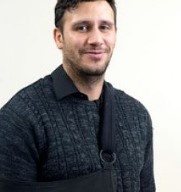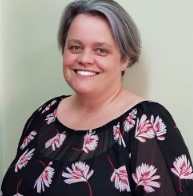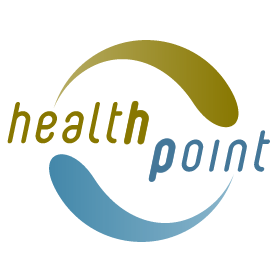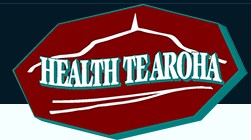Waikato > GPs / Accident & Urgent Medical Care > Pinnacle Midlands Health Network >
Health Te Aroha
General Practice (GP) Service
Today
8:30 AM to 5:00 PM.
Covid-19 testing
GP practice - enrolled and casual patients
This practice provides Covid-19 testing to enrolled and casual patients. Please call the practice for more information.
Description
Health Te Aroha started in the late 1990’s. Tertius Coetzer and Paul Henry amalgamated three of the four solo practices in Te Aroha into one practice and named it Health Te Aroha. This practice moved into a purpose built building in 2001 where it has stayed until today.
We currently have 5500 patients and we offer care to the local community, covering the local rest homes, the community trust hospital and also college clinics.
We are a practice that is quality focused and enjoys innovation and being at the forefront of general practice.
The practice has prided itself on performing well in the quality plan with Midlands Health. In 2016 we achieved first place in the PHO for our quality performance.
We partner with Practice Plus to provide virtual after-hours GP services, as an extension of our regular medical centre team.
Doctors
-

Dr Brendon Eade
General Practitioner - Vocationally Registered
-

Dr Keegan Edwardson
General Practitioner
-

Dr Annabelle McGowan
General Practitioner
-

Dr Hayley Scott
General Practitioner - Vocationally Registered
How do I access this service?
Make an appointment, Enrolled patients
Enrolling new patients
Yes
This practice is enrolling new patients.
Fees
Weekday Fees For Registered Enrolled Patients
| Age | Standard Consultation | With CSC |
| Under 14 years | Free | Free |
| 14 - 17 years | $28.50 | $13.00 |
| 18 - 24 years | $34.00 | $19.50 |
| 25 - 64 years | $54.50 | $19.50 |
| 65 years + | $45.50 | $19.50 |
Hours
8:30 AM to 5:00 PM.
| Mon – Fri | 8:30 AM – 5:00 PM |
|---|
Please note WEEKENDS and ALL PUBLIC HOLIDAYS: Call Practice between 9 -12 for phone triage service
After Hours: phone GP practice and follow instructions. You will be transferred to an after hours service who will direct you.
After hours option: We partner with Practice Plus to provide same day virtual GP appointments for enrolled patients, as an extension of our regular medical centre team.
Practice Plus is available weekdays until 10pm and weekends/public holidays 8am-8pm.
Click here to find out more and to register/book an appointment.
Public Holidays: Closed ANZAC Day (25 Apr), King's Birthday (3 Jun), Matariki (28 Jun), Labour Day (28 Oct), Waitangi Day (6 Feb), Good Friday (18 Apr), Easter Sunday (20 Apr), Easter Monday (21 Apr).
Languages Spoken
English
Services Provided
Immunisation is the safest and most effective way to provide protection for you and your tamariki’s health. For more information view the NZ immunisation schedule.
Immunisation is the safest and most effective way to provide protection for you and your tamariki’s health. For more information view the NZ immunisation schedule.
- Pregnancy vaccinations
- Childhood immunisation programme
- 45 year old vaccinations
- 65 year old vaccinations
- Adult flu vaccine
- Child flu vaccine
- Diphtheria / Tetanus / Pertussis (whooping cough) vaccine
- Human Papillomavirus (HPV) vaccine
- Meningococcal vaccine
- Measles / Mumps / Rubella (MMR) vaccine
- Shingles vaccine
- Travel vaccinations
Immunisation is the safest and most effective way to provide protection for you and your tamariki’s health. For more information view the NZ immunisation schedule.
Your GP's surgery is far more than a place to go when you are feeling unwell and needing a quick cure. The doctor who sees you has gone through an extensive medical training to equip her or him to help children and adults of all ages with a range of physical and emotional difficulties. GPs are at the centre of the healthcare hub and will be aware of services and expertise that are available locally and further-a-field. GPs are also aware of the link that stress and unhappy life events have on physical health so know when to suggest a talking therapy rather than medication.
Your GP's surgery is far more than a place to go when you are feeling unwell and needing a quick cure. The doctor who sees you has gone through an extensive medical training to equip her or him to help children and adults of all ages with a range of physical and emotional difficulties. GPs are at the centre of the healthcare hub and will be aware of services and expertise that are available locally and further-a-field. GPs are also aware of the link that stress and unhappy life events have on physical health so know when to suggest a talking therapy rather than medication.
Your GP's surgery is far more than a place to go when you are feeling unwell and needing a quick cure. The doctor who sees you has gone through an extensive medical training to equip her or him to help children and adults of all ages with a range of physical and emotional difficulties. GPs are at the centre of the healthcare hub and will be aware of services and expertise that are available locally and further-a-field. GPs are also aware of the link that stress and unhappy life events have on physical health so know when to suggest a talking therapy rather than medication.
Primary care practices offer a range of services and are able to deal with most minor accident care. If they are not able to deal with an injury they will refer on to the appropriate service.
Primary care practices offer a range of services and are able to deal with most minor accident care. If they are not able to deal with an injury they will refer on to the appropriate service.
Primary care practices offer a range of services and are able to deal with most minor accident care. If they are not able to deal with an injury they will refer on to the appropriate service.
Minor surgery is commonly provided in primary care practices, providing fast, competent removal and biopsies of skin lesions. Other services include cosmetic work such as removal of benign moles and skin tags. Ingrown toenail surgery is also commonly provided. These conditions do not need to be referred to a hospital, perhaps saving you a long wait or a cancelled appointment when a more serious case takes priority. If your doctor is unable to provide the procedure you need, he/she may know a neighbouring GP who does. Otherwise, the PHO will have a list of GPs trained in particular operations.
Minor surgery is commonly provided in primary care practices, providing fast, competent removal and biopsies of skin lesions. Other services include cosmetic work such as removal of benign moles and skin tags. Ingrown toenail surgery is also commonly provided. These conditions do not need to be referred to a hospital, perhaps saving you a long wait or a cancelled appointment when a more serious case takes priority. If your doctor is unable to provide the procedure you need, he/she may know a neighbouring GP who does. Otherwise, the PHO will have a list of GPs trained in particular operations.
Minor surgery is commonly provided in primary care practices, providing fast, competent removal and biopsies of skin lesions. Other services include cosmetic work such as removal of benign moles and skin tags. Ingrown toenail surgery is also commonly provided.
These conditions do not need to be referred to a hospital, perhaps saving you a long wait or a cancelled appointment when a more serious case takes priority.
If your doctor is unable to provide the procedure you need, he/she may know a neighbouring GP who does. Otherwise, the PHO will have a list of GPs trained in particular operations.
Each GP surgery or primary care practice will have its own procedure for repeat prescribing but the following rules are common to most, if not all. Patients who are well-known to the practice who have a stable condition like asthma, hypertension or diabetes could be allowed to get a repeat prescription for up to six months. Repeat prescriptions are never given to patients who are not known to the practice and there is probably a blanket ban on repeats for narcotics and other drugs that could be misused as doctors are expected to monitor these drugs carefully.
Each GP surgery or primary care practice will have its own procedure for repeat prescribing but the following rules are common to most, if not all. Patients who are well-known to the practice who have a stable condition like asthma, hypertension or diabetes could be allowed to get a repeat prescription for up to six months. Repeat prescriptions are never given to patients who are not known to the practice and there is probably a blanket ban on repeats for narcotics and other drugs that could be misused as doctors are expected to monitor these drugs carefully.
Each GP surgery or primary care practice will have its own procedure for repeat prescribing but the following rules are common to most, if not all. Patients who are well-known to the practice who have a stable condition like asthma, hypertension or diabetes could be allowed to get a repeat prescription for up to six months. Repeat prescriptions are never given to patients who are not known to the practice and there is probably a blanket ban on repeats for narcotics and other drugs that could be misused as doctors are expected to monitor these drugs carefully.
Sometimes your doctor needs to take a sample of blood or urine either to discover what is wrong with you or to measure something in your blood so that the right medication is given to you. These tests could be anything from blood sugar to a full blood count or a sample of tissue to test for cancer. While urine can generally be tested in the surgery, blood and other specimens are usually sent away for testing at a laboratory. Most results come back within 48 hours unless a very rare test is needed which has to go to a specialist lab further away when it might take a little longer.
Sometimes your doctor needs to take a sample of blood or urine either to discover what is wrong with you or to measure something in your blood so that the right medication is given to you. These tests could be anything from blood sugar to a full blood count or a sample of tissue to test for cancer. While urine can generally be tested in the surgery, blood and other specimens are usually sent away for testing at a laboratory. Most results come back within 48 hours unless a very rare test is needed which has to go to a specialist lab further away when it might take a little longer.
Sometimes your doctor needs to take a sample of blood or urine either to discover what is wrong with you or to measure something in your blood so that the right medication is given to you. These tests could be anything from blood sugar to a full blood count or a sample of tissue to test for cancer.
While urine can generally be tested in the surgery, blood and other specimens are usually sent away for testing at a laboratory. Most results come back within 48 hours unless a very rare test is needed which has to go to a specialist lab further away when it might take a little longer.
Liquid nitrogen is a fast, effective treatment provided in many practices to treat viral warts, sun damaged skin, skin tags and many benign cosmetic lesions. It comes in a container with a nozzle and is usually applied by swab or spray. Often one treatment is all that is needed but sometimes it may need repeating after two weeks. Because it cannot be stored for too long, you will often find that your GP will treat a number of patients one after the other. For more information click here.
Liquid nitrogen is a fast, effective treatment provided in many practices to treat viral warts, sun damaged skin, skin tags and many benign cosmetic lesions. It comes in a container with a nozzle and is usually applied by swab or spray. Often one treatment is all that is needed but sometimes it may need repeating after two weeks. Because it cannot be stored for too long, you will often find that your GP will treat a number of patients one after the other. For more information click here.
Liquid nitrogen is a fast, effective treatment provided in many practices to treat viral warts, sun damaged skin, skin tags and many benign cosmetic lesions. It comes in a container with a nozzle and is usually applied by swab or spray. Often one treatment is all that is needed but sometimes it may need repeating after two weeks.
Because it cannot be stored for too long, you will often find that your GP will treat a number of patients one after the other.
For more information click here.
LARC methods are very effective at preventing unplanned pregnancy and are “fit and forget” forms of contraception – you don’t need to remember them every day or every month. LARC methods: Intrauterine Contraceptive Devices (IUCD or IUD) are inserted through the cervix into a woman’s uterus. IUCDs may be either hormonal (Mirena® or Jaydess® ) or non-hormonal (copper IUCD). Jadelle® is a hormone-releasing implant that is inserted just under the skin of the upper arm. Depending on the type of device, it will need to be changed after between three and ten years. Read more about LARC methods here
LARC methods are very effective at preventing unplanned pregnancy and are “fit and forget” forms of contraception – you don’t need to remember them every day or every month. LARC methods: Intrauterine Contraceptive Devices (IUCD or IUD) are inserted through the cervix into a woman’s uterus. IUCDs may be either hormonal (Mirena® or Jaydess® ) or non-hormonal (copper IUCD). Jadelle® is a hormone-releasing implant that is inserted just under the skin of the upper arm. Depending on the type of device, it will need to be changed after between three and ten years. Read more about LARC methods here
LARC methods are very effective at preventing unplanned pregnancy and are “fit and forget” forms of contraception – you don’t need to remember them every day or every month. LARC methods:
- Intrauterine Contraceptive Devices (IUCD or IUD) are inserted through the cervix into a woman’s uterus. IUCDs may be either hormonal (Mirena® or Jaydess® ) or non-hormonal (copper IUCD).
- Jadelle® is a hormone-releasing implant that is inserted just under the skin of the upper arm.
Depending on the type of device, it will need to be changed after between three and ten years.
Read more about LARC methods here
All women and people with a cervix aged 25 – 69 who have ever had intimate skin-to-skin contact or been sexually active should have regular cervical screening. This includes women who have been immunised against HPV. Together, regular screening and HPV immunisation provide the best protection against cervical cancer. There are now more options for how you have cervical screening done: a simple vaginal swab test for HPV, either done yourself or with help from a healthcare professional a cervical sample taken by a healthcare professional (used to be known as a smear test). Talk with your healthcare provider to decide which option is best for you. If HPV is found, you may need to have a follow-up test or be referred directly for colposcopy. If you’ve not yet had HPV testing, you should be screened 3 years after your last test (or 1 year if immune deficient). Once you have had an HPV test, and providing HPV is not found, your next screening will be in 5 years (or 3 years if immune deficient). For more information: Cervical screening | Time to Screen - National Screening Unit
All women and people with a cervix aged 25 – 69 who have ever had intimate skin-to-skin contact or been sexually active should have regular cervical screening. This includes women who have been immunised against HPV. Together, regular screening and HPV immunisation provide the best protection against cervical cancer. There are now more options for how you have cervical screening done: a simple vaginal swab test for HPV, either done yourself or with help from a healthcare professional a cervical sample taken by a healthcare professional (used to be known as a smear test). Talk with your healthcare provider to decide which option is best for you. If HPV is found, you may need to have a follow-up test or be referred directly for colposcopy. If you’ve not yet had HPV testing, you should be screened 3 years after your last test (or 1 year if immune deficient). Once you have had an HPV test, and providing HPV is not found, your next screening will be in 5 years (or 3 years if immune deficient). For more information: Cervical screening | Time to Screen - National Screening Unit
All women and people with a cervix aged 25 – 69 who have ever had intimate skin-to-skin contact or been sexually active should have regular cervical screening. This includes women who have been immunised against HPV. Together, regular screening and HPV immunisation provide the best protection against cervical cancer.
There are now more options for how you have cervical screening done:
- a simple vaginal swab test for HPV, either done yourself or with help from a healthcare professional
- a cervical sample taken by a healthcare professional (used to be known as a smear test).
Talk with your healthcare provider to decide which option is best for you.
If HPV is found, you may need to have a follow-up test or be referred directly for colposcopy.
If you’ve not yet had HPV testing, you should be screened 3 years after your last test (or 1 year if immune deficient). Once you have had an HPV test, and providing HPV is not found, your next screening will be in 5 years (or 3 years if immune deficient).
For more information: Cervical screening | Time to Screen - National Screening Unit
An ECG is a recording of your heart's electrical activity. Electrode patches are attached to your skin to measure the electrical impulses given off by your heart. The result is a trace that can be read by a doctor. It can give information of previous heart attacks or problems with the heart rhythm.
An ECG is a recording of your heart's electrical activity. Electrode patches are attached to your skin to measure the electrical impulses given off by your heart. The result is a trace that can be read by a doctor. It can give information of previous heart attacks or problems with the heart rhythm.
An ECG is a recording of your heart's electrical activity. Electrode patches are attached to your skin to measure the electrical impulses given off by your heart. The result is a trace that can be read by a doctor. It can give information of previous heart attacks or problems with the heart rhythm.
Spirometry is a tool that measures how effectively your lungs are working. It is able to show how much air lungs are able to hold (their volume) and how much air can be breathed in and out (inhaled and exhaled) which is called flow. This tool is used to assess damage caused by conditions like COPD (chronic obstructive pulmonary disease – a group that includes bronchitis and emphysema), pulmonary fibrosis, cystic fibrosis and asthma. Results are shown on a graph called a pneumotachograph. For more information click on the following link http://en.wikipedia.org/wiki/Spirometry
Spirometry is a tool that measures how effectively your lungs are working. It is able to show how much air lungs are able to hold (their volume) and how much air can be breathed in and out (inhaled and exhaled) which is called flow. This tool is used to assess damage caused by conditions like COPD (chronic obstructive pulmonary disease – a group that includes bronchitis and emphysema), pulmonary fibrosis, cystic fibrosis and asthma. Results are shown on a graph called a pneumotachograph. For more information click on the following link http://en.wikipedia.org/wiki/Spirometry
Spirometry is a tool that measures how effectively your lungs are working. It is able to show how much air lungs are able to hold (their volume) and how much air can be breathed in and out (inhaled and exhaled) which is called flow. This tool is used to assess damage caused by conditions like COPD (chronic obstructive pulmonary disease – a group that includes bronchitis and emphysema), pulmonary fibrosis, cystic fibrosis and asthma. Results are shown on a graph called a pneumotachograph.
For more information click on the following link http://en.wikipedia.org/wiki/Spirometry
All New Zealand children are entitled to 11 free health checks from birth to three years. The checks aim to ensure that children are growing and developing as well as possible. Included in the checks are clinical assessment, health education and family/whanau support. Baby checks are at birth and then at 24 hours, five days and around 2-4 weeks. Babies are weighed and measured to ensure that they are developing correctly. These sessions provide a great opportunity for parents to ask questions from an expert and have any problem addressed; difficulties with breastfeeding or sleep for example. They can also be used to discuss immunisations and vaccinations. These checks will be carried out by your lead maternity carer (LMC). Between the ages of 4-6 weeks and three years, there are seven core health checks available, typically these are around 4-6 weeks, 8-10 weeks, 3-4 months, 5-7 months, 9-12 months, 15-18 months and 2-3 years. These checks may be carried out by a Well Child Provider of your choice e.g. Plunket, Maori health provider, community nurse, a general practice team (doctor and practice nurse). Your LMC will be able to give you a list of Well Child Providers in your area. More information about Well Child services is available on the Ministry of Health website.
All New Zealand children are entitled to 11 free health checks from birth to three years. The checks aim to ensure that children are growing and developing as well as possible. Included in the checks are clinical assessment, health education and family/whanau support. Baby checks are at birth and then at 24 hours, five days and around 2-4 weeks. Babies are weighed and measured to ensure that they are developing correctly. These sessions provide a great opportunity for parents to ask questions from an expert and have any problem addressed; difficulties with breastfeeding or sleep for example. They can also be used to discuss immunisations and vaccinations. These checks will be carried out by your lead maternity carer (LMC). Between the ages of 4-6 weeks and three years, there are seven core health checks available, typically these are around 4-6 weeks, 8-10 weeks, 3-4 months, 5-7 months, 9-12 months, 15-18 months and 2-3 years. These checks may be carried out by a Well Child Provider of your choice e.g. Plunket, Maori health provider, community nurse, a general practice team (doctor and practice nurse). Your LMC will be able to give you a list of Well Child Providers in your area. More information about Well Child services is available on the Ministry of Health website.
All New Zealand children are entitled to 11 free health checks from birth to three years. The checks aim to ensure that children are growing and developing as well as possible. Included in the checks are clinical assessment, health education and family/whānau support.
Baby checks are at birth and then at 24 hours, five days and around 2-4 weeks. Babies are weighed and measured to ensure that they are developing correctly. These sessions provide a great opportunity for parents to ask questions from an expert and have any problem addressed; difficulties with breastfeeding or sleep for example. They can also be used to discuss immunisations and vaccinations. These checks will be carried out by your lead maternity carer (LMC).
Between the ages of 4-6 weeks and three years, there are seven core health checks available, typically these are around 4-6 weeks, 8-10 weeks, 3-4 months, 5-7 months, 9-12 months, 15-18 months and 2-3 years. These checks may be carried out by a Well Child Provider of your choice e.g. Plunket, Māori health provider, community nurse, a general practice team (doctor and practice nurse). Your LMC will be able to give you a list of Well Child Providers in your area.
More information about Well Child services is available on the Ministry of Health website.
A patient portal is a secure online tool provided by GP practices that can allow convenient access to your health information as well as interaction with the practice e.g. booking appointments and requesting repeat prescriptions. My Indici is our patient portal
A patient portal is a secure online tool provided by GP practices that can allow convenient access to your health information as well as interaction with the practice e.g. booking appointments and requesting repeat prescriptions. My Indici is our patient portal
A patient portal is a secure online tool provided by GP practices that can allow convenient access to your health information as well as interaction with the practice e.g. booking appointments and requesting repeat prescriptions.
My Indici is our patient portal
Getting a COVID-19 vaccine is an important step you can take to protect yourself, your kaumātua and whānau from the effects of the virus. For more information on the COVID-19 vaccines and eligibility visit Ministry of Health - COVID-19 vaccines Covid-19 vaccines can be administered before, after, or at the same time as other national schedule vaccines. When the Nuvaxovid vaccine is given at the same time as the Shingrix shingles vaccine or the Fluad Quad flu vaccine, there may be a chance of experiencing a stronger post-vaccination response and you should discuss this with your vaccinator.
Getting a COVID-19 vaccine is an important step you can take to protect yourself, your kaumātua and whānau from the effects of the virus. For more information on the COVID-19 vaccines and eligibility visit Ministry of Health - COVID-19 vaccines Covid-19 vaccines can be administered before, after, or at the same time as other national schedule vaccines. When the Nuvaxovid vaccine is given at the same time as the Shingrix shingles vaccine or the Fluad Quad flu vaccine, there may be a chance of experiencing a stronger post-vaccination response and you should discuss this with your vaccinator.
- Pfizer vaccine (12+ years) OR Pfizer booster (16+ years)
- Child Pfizer vaccine (5-11 years)
- Anyone currently eligible can access
Getting a COVID-19 vaccine is an important step you can take to protect yourself, your kaumātua and whānau from the effects of the virus. For more information on the COVID-19 vaccines and eligibility visit Ministry of Health - COVID-19 vaccines
Covid-19 vaccines can be administered before, after, or at the same time as other national schedule vaccines. When the Nuvaxovid vaccine is given at the same time as the Shingrix shingles vaccine or the Fluad Quad flu vaccine, there may be a chance of experiencing a stronger post-vaccination response and you should discuss this with your vaccinator.
A skin check is a really important part of keeping well in New Zealand. We have high rates of skin cancer and a skin check is your best way to pick up lesions as early as possible. So what is a “skin check”? A skin check is a thorough check of all the skin on your body, in a systematic way. This allows us to check all the lesions on your skin. It takes up to 30 minutes to do properly, and to do this we use a special light called a dermascope. Our clinics will involve a doctor and a nurse, and if you need a biopsy or a removal, we plan to be able to do this at the same clinic, or quite quickly afterwards. We are really pleased to be able to offer this service. Devoting 30 mins to a proper skin check means it can be done properly, rather than trying to squeeze it into a 15 min appointment, with other conditions to address. We aim to pick up skin cancers, but also lesions that are premalignant. This means lesions that may not be cancerous yet, but may become so in the future. If we can treat these early, we can prevent the lesion developing into a cancer. So how often do we need to have our skin checked? This differs for each patient depending on your risk. This is affected by your sun exposure, your skin type and your family history. At your first skin check, you can discuss with the doctor what your risk is, and when you should have your next one done. Dermnet.org.nz is a great website and lots of information about skin checks, and mole map. It also has a full description of what to expect when you have a skin check done.
A skin check is a really important part of keeping well in New Zealand. We have high rates of skin cancer and a skin check is your best way to pick up lesions as early as possible. So what is a “skin check”? A skin check is a thorough check of all the skin on your body, in a systematic way. This allows us to check all the lesions on your skin. It takes up to 30 minutes to do properly, and to do this we use a special light called a dermascope. Our clinics will involve a doctor and a nurse, and if you need a biopsy or a removal, we plan to be able to do this at the same clinic, or quite quickly afterwards. We are really pleased to be able to offer this service. Devoting 30 mins to a proper skin check means it can be done properly, rather than trying to squeeze it into a 15 min appointment, with other conditions to address. We aim to pick up skin cancers, but also lesions that are premalignant. This means lesions that may not be cancerous yet, but may become so in the future. If we can treat these early, we can prevent the lesion developing into a cancer. So how often do we need to have our skin checked? This differs for each patient depending on your risk. This is affected by your sun exposure, your skin type and your family history. At your first skin check, you can discuss with the doctor what your risk is, and when you should have your next one done. Dermnet.org.nz is a great website and lots of information about skin checks, and mole map. It also has a full description of what to expect when you have a skin check done.
A skin check is a really important part of keeping well in New Zealand. We have high rates of skin cancer and a skin check is your best way to pick up lesions as early as possible.
So what is a “skin check”? A skin check is a thorough check of all the skin on your body, in a systematic way. This allows us to check all the lesions on your skin. It takes up to 30 minutes to do properly, and to do this we use a special light called a dermascope. Our clinics will involve a doctor and a nurse, and if you need a biopsy or a removal, we plan to be able to do this at the same clinic, or quite quickly afterwards.
We are really pleased to be able to offer this service. Devoting 30 mins to a proper skin check means it can be done properly, rather than trying to squeeze it into a 15 min appointment, with other conditions to address.
We aim to pick up skin cancers, but also lesions that are premalignant. This means lesions that may not be cancerous yet, but may become so in the future. If we can treat these early, we can prevent the lesion developing into a cancer.
So how often do we need to have our skin checked? This differs for each patient depending on your risk. This is affected by your sun exposure, your skin type and your family history. At your first skin check, you can discuss with the doctor what your risk is, and when you should have your next one done.
Dermnet.org.nz is a great website and lots of information about skin checks, and mole map. It also has a full description of what to expect when you have a skin check done.
Ear Clinics are held Thursday mornings by appointment only. The new technology that we have acquired enables the practitioner to use both hands to carry out wax removal. The Oscope is a unique, converged bioptics system - similar to an operating microscope, with LED illumination along the visual pathway, providing shadow-free, 3D vision and critical depth perception used during the procedure. Microsuction works by sucking wax from the canal with the use of specialised tools for manually removing the blockages, as opposed to ear syringing where water is flushed into the ear canals.
Ear Clinics are held Thursday mornings by appointment only. The new technology that we have acquired enables the practitioner to use both hands to carry out wax removal. The Oscope is a unique, converged bioptics system - similar to an operating microscope, with LED illumination along the visual pathway, providing shadow-free, 3D vision and critical depth perception used during the procedure. Microsuction works by sucking wax from the canal with the use of specialised tools for manually removing the blockages, as opposed to ear syringing where water is flushed into the ear canals.
Ear Clinics are held Thursday mornings by appointment only.
The new technology that we have acquired enables the practitioner to use both hands to carry out wax removal. The Oscope is a unique, converged bioptics system - similar to an operating microscope, with LED illumination along the visual pathway, providing shadow-free, 3D vision and critical depth perception used during the procedure.
Microsuction works by sucking wax from the canal with the use of specialised tools for manually removing the blockages, as opposed to ear syringing where water is flushed into the ear canals.
Special Assistance Support (COVID-19 Vaccination)
Special Assistance Support (COVID-19 Vaccination)
- Wheelchair access
Disability Assistance
Wheelchair access
Online Booking URL
Website
Covid-19 vaccination booking URL
Contact Details
28 Church Street, Te Aroha
Waikato
8:30 AM to 5:00 PM.
-
Phone
(07) 884 8053
-
Fax
(07) 884 7231
Healthlink EDI
coetzley
Email
Website
28 Church Street
Te Aroha
Waikato 3320
Street Address
28 Church Street
Te Aroha
Waikato 3320
Was this page helpful?
This page was last updated at 3:55PM on February 15, 2024. This information is reviewed and edited by Health Te Aroha.

